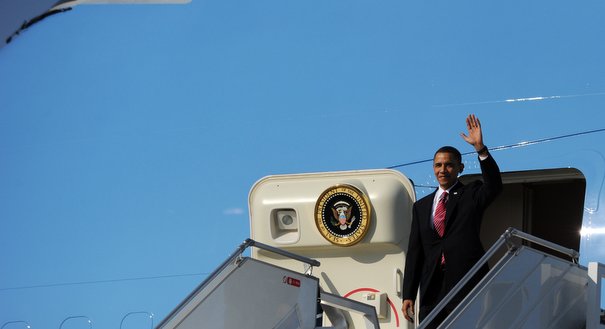 President Obama and Middle East ExpectationsArabs expect the Obama administration to focus immediately on the Palestinian issue, using its influence with Israel to halt settlement activity and acting as an honest broker in peace negotiations, according to a leading Arab analysts commissioned by the Carnegie Middle East Center President to reveal Middle East expectations of President Obama.
President Obama and Middle East ExpectationsArabs expect the Obama administration to focus immediately on the Palestinian issue, using its influence with Israel to halt settlement activity and acting as an honest broker in peace negotiations, according to a leading Arab analysts commissioned by the Carnegie Middle East Center President to reveal Middle East expectations of President Obama.
The widespread belief that the United States is an ally of regional dictators and an unquestioning supporter of Israel colors Arab perceptions of every American move in the region. The writers argue that pressuring Israel to fulfill its commitments vis-à-vis the Palestinians is the only way to rebuild U.S.–Arab relations and rehabilitate the United States’ image in the Middle East.
Key points:
- President Obama’s current popularity in the Arab world is a perishable asset. Delaying action on Palestine, Iraq, and political reform in the Arab world will revive regional anti-American hostility.
- The administration should hold direct talks with Hamas and support Mahmoud Abbas’s attempts to reconcile Fatah and Hamas. Abbas cannot secure a peace agreement with Israel without Hamas.
- Arabs also expect a clear and unequivocal declaration that the United States plans to withdraw from Iraq. Details of the exit strategy are less important than a strong signal that the U.S. occupation of Iraq—a critical obstacle to productive U.S.–Arab relations—is over.
- The United States should continue its support for democratization in the Middle East, but it must re-examine its position on Islamist parties, which are part of the region’s political reality and cannot be shut out of the process of political reform. Treating all Islamist organizations as enemies plays into the hands of increasingly powerful radicals.
Gamal al-Ghitany, Khaled al-Hroub, Salah ad-Din al-Jourchi, and Mustapha al-Khalfi—prominent journalists, academics, and activists—contributed their reactions to Barack Obama’s victory.
Carnegie’s Amr Hamzawy and Marina Ottaway, who compiled the commentaries, conclude:
“Obama’s election was a public diplomacy triumph for the United States, the first real success the United States has won in the Arab world in a long time, and probably the most important one since President Eisenhower backed Egypt’s efforts to regain control of the Suez Canal in 1956. Yet the success could prove short-lived: Arabs were reacting to concrete change, not to words, and are likely to revert to the old hostility unless Obama’s words are backed by concrete changes in U.S. Middle East policies.”





